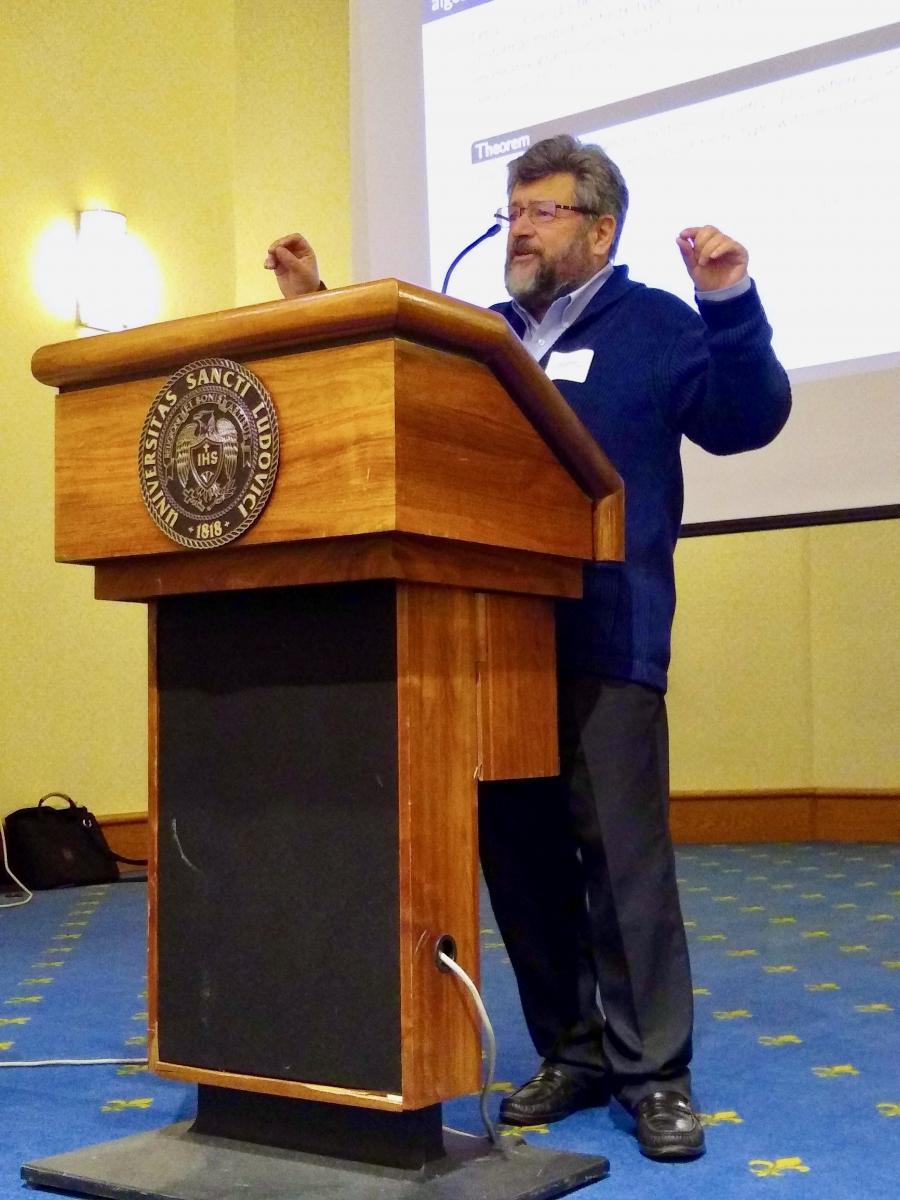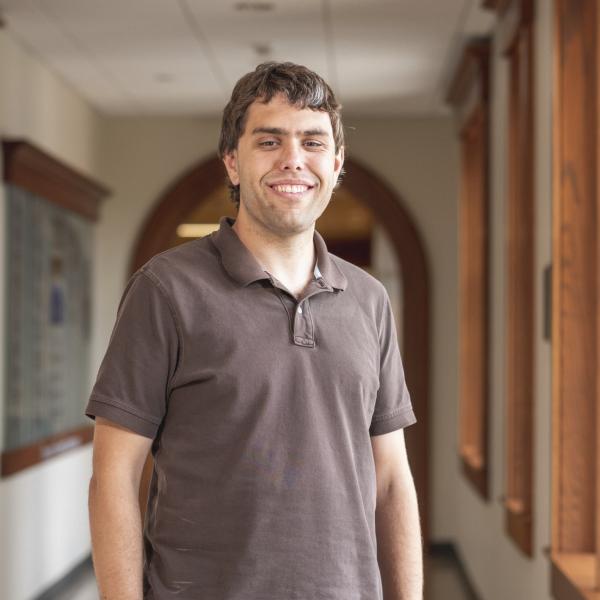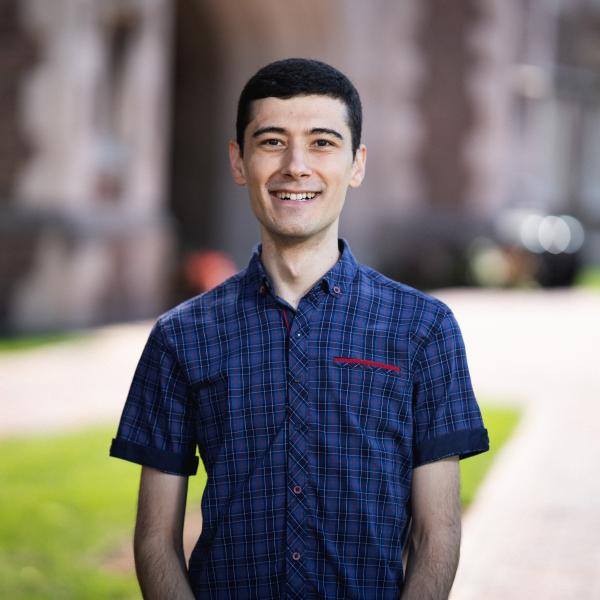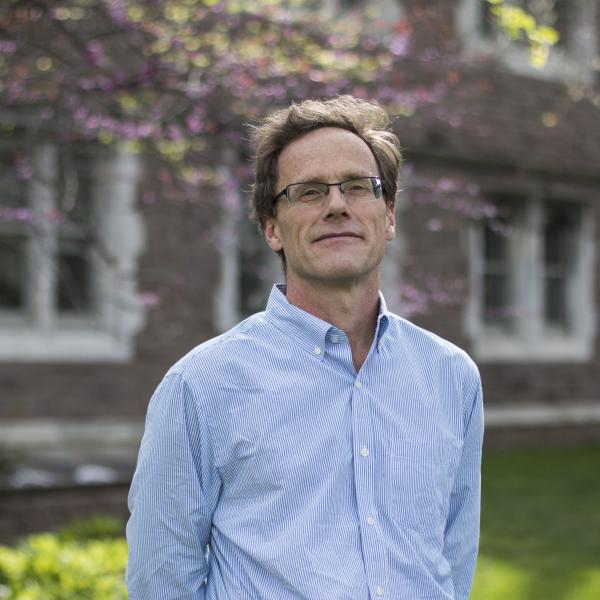The new academy aims to encourage cooperation among the mathematical sciences community in St. Louis.
On Nov. 14, mathematicians, statisticians, and data scientists from around the St. Louis region gathered for the inaugural meeting of the St. Louis Academy of Mathematical Sciences. Cofounded this fall by John McCarthy, the Spencer T. Olin Professor of Mathematics and chair of the Department of Mathematics and Statistics, the academy aims to encourage cooperation among the mathematical sciences community in St. Louis.
McCarthy first conceived of the academy over a lunch meeting in August with Bryan Clair, chair of mathematics and statistics at St. Louis University. "The motivation was a combination of scientific and social," McCarthy says. "The idea is to foster contacts between the departments at WashU, SLU, UMSL, and beyond, and also to bring in people who are not actually in a mathematics department but still are interested in mathematics in its broad sense." Disciplines within the mathematical sciences include mathematics, statistics, mathematical modelling, data science, and more.
Leading organizations like the National Academy of Sciences (NAS) echo this push for collaboration across the mathematical sciences. In its report "The Mathematical Sciences in 2025," the NAS asserts that mathematical work is becoming more intertwined with such disciplines as biology, medicine, business, and the social sciences. "This work involves the integration of mathematics, statistics, and computation in the broadest sense and the interplay of these areas with areas of potential application," the report states. "All of these activities are crucial to economic growth, national competitiveness, and national security."

Though crucial, this ideal can be difficult to put into practice, McCarthy says. In addition to the challenges of connecting with colleagues across institutions, "it remains a challenge to build up interactions with colleagues in other departments in our own universities," he explains. "We wanted a forum to share stories of success and failure on this front, too."
At its inaugural meeting, held at St. Louis University's Pere Marquette Gallery, the organization also served as a source of inspiration. Participants at the event heard a talk from keynote speaker Efim Zelmanov. Zelmanov won the prestigious Fields Medal in 1994, and his work has applications in physics.
Going forward, the St. Louis Academy of Mathematical Sciences will serve as a venue where mathematical scientists from all over the St. Louis area can come together to discuss their research, as well as practical matters like course offerings and how to reach out to other departments. The goal of bringing together mathematical scientists from various universities has already been successful – registered participants at the Nov. 14 event came from Washington University, St. Louis University, the University of Missouri-St. Louis, Southern Illinois University Carbondale, Harris-Stowe State University, and Lindenwood University.




